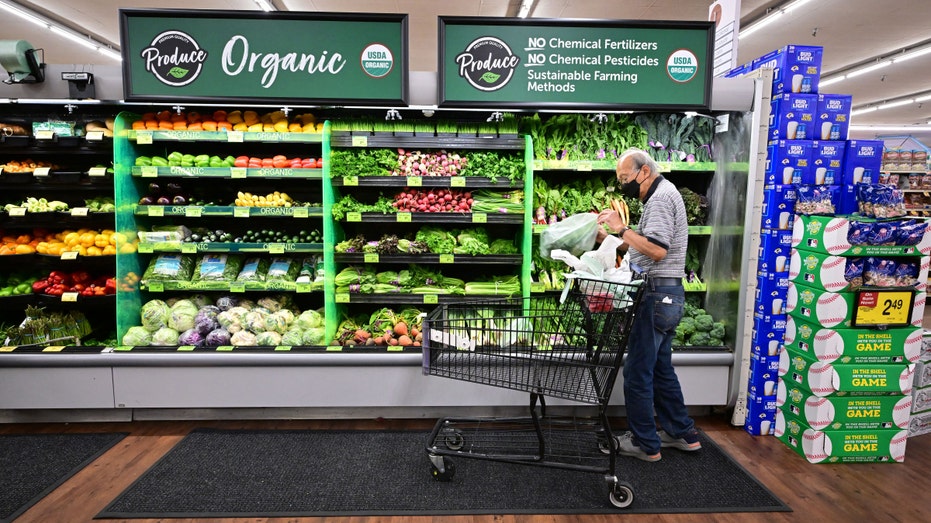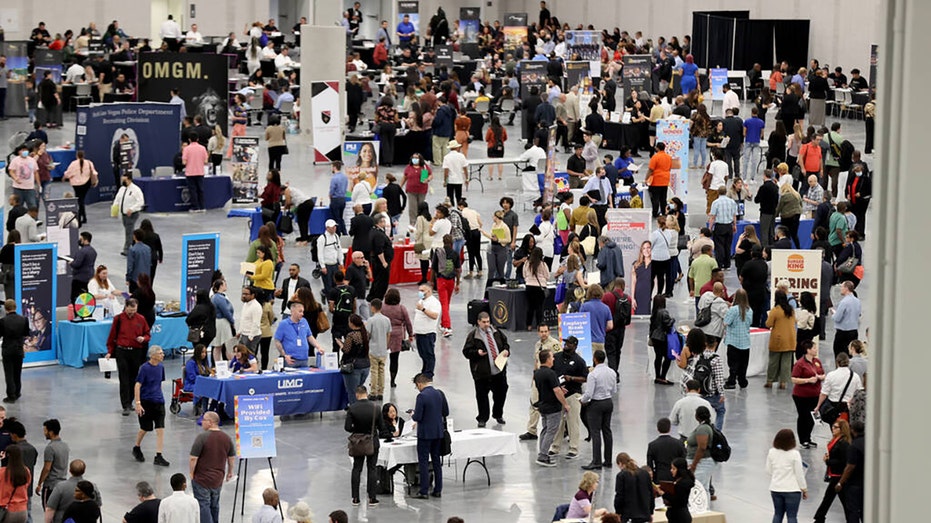Unrelenting inflation forces more Americans to consider getting a second job
Workers relocating to areas with a lower cost of living, study shows
Fed unlikely to ‘slow down’ if inflation rates do not respond soon: Kenny Polcari
SlateStone Wealth Chief Market Strategist Kenny Polcari surveys the U.S. economy as the 10-year treasury yield continues to climb to record rates on ‘Varney & Co.’
More than half of working Americans are considering working a second job as painfully high inflation rapidly erodes their purchasing power.
That's according to a new survey from Qualtrics International, which showed that 38% of workers have looked for a second job. Another 14% are considering searching for another job, according to the survey of 1,000 full-time U.S. employees.
At the same time, 18% of workers said they have relocated to an area that has a lower cost of living to reduce expenses. An additional 13% had a plan to do so.
The Labor Department reported last week that average hourly earnings for all employees declined 3% in September from the same month a year ago when factoring in the impact of rising consumer prices. On a monthly basis, average hourly earnings dropped 0.1% last month when accounting for the inflation spike.
SOCIAL SECURITY RECIPIENTS TO SEE BIGGEST COLA INCREASE SINCE 1981
By that measure, the typical U.S. worker is actually worse off today than a year ago, even though nominal wages are rising at the fastest pace in years.
That's because consumers are confronting scorching-hot inflation, which has quickly diminished their purchasing power.
The government said last Thursday that the consumer price index, a broad measure of the price for everyday goods, including gasoline, groceries and rents, rose 0.4% in September from the previous month. Prices climbed 8.2% on an annual basis.
US RECESSION ODDS RISE TO 100% AS INFLATION SQUEEZES THE ECONOMY
Those figures were both higher than the 8.1% headline figure and 0.2% monthly increase forecast by Refinitiv economists, a worrisome sign for the Federal Reserve as it seeks to cool price gains and tame consumer demand with an aggressive interest rate hike campaign.

A shopper looks at organic produce at a supermarket in Montebello, Calif., Aug. 23, 2022. (Federic J. Brown/AFP via Getty Images / Getty Images)
In an even more concerning development that suggests underlying inflationary pressures in the economy remain strong, core prices, which strip out the more volatile measurements of food and energy, climbed 0.6% in September from the previous month. From the same time last year, core prices jumped 6.6%, the fastest since 1982.
Inflation has created severe financial pressures for most U.S. households, which are forced to pay more for everyday necessities like food and rent.
The burden is disproportionately borne by low-income Americans, whose already-stretched paychecks are heavily impacted by price fluctuations.
Although households continued to see some reprieve last month in the form of lower gas prices, which fell 4.9% in September from the previous month, other price gains proved persistent and stubbornly high.
The cost of groceries climbed 0.7%, putting the 12-month increase at 13%. Consumers paid more for items like cereal, chicken, milk and fresh vegetables.

Job seekers visit booths during the Spring Job Fair at the Las Vegas Convention Center April 15, 2022. (K.M. Cannon/Las Vegas Review-Journal / Getty Images)
CLICK HERE TO READ MORE ON FOX BUSINESS
Shelter costs, which account for about 40% of the core inflation increase, climbed 6.6% over the past year, the fastest since February 1991.
Rent costs jumped 0.8% over the month and 6.7% on an annual basis. Rising rents are a concerning development because higher housing costs most directly and acutely affect household budgets. Another data point that measures how much homeowners would pay in equivalent rent if they had not bought their home climbed 0.8% in September from the previous month.





















